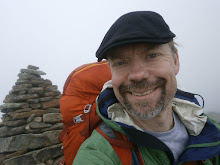I almost did not race at all this season. I've been injured, then sick, then overwhelmed at work. I had resigned myself to just riding for fun since I have so little fitness. I thought it might be better to prepare for next year. I was getting cranky to the point that my wife almost insisted I race at least once. So I figured Shedd Park would be the best choice: a course I like, not far away, local grass roots type event.
Except Shedd Park CX isn't a "little grass roots" event anymore. When I first raced the Boston Road Club event in 2005 it drew just about 200 racers. The flyer included a caveat that the elite men's race would be cancelled if less than 10 guys pre-registered. The course had a bare minimum of tape, a handful of spectators, & no call up or staging grid, results were on a handwritten sheet tacked up. Over the years New England cyclocross has improved each year for good reasons: the racing is intense, the crowds friendly, the courses high quality. More than double the number of racers now show up for Shedd Park CX as did 8 years ago. This year the count was 548. That is a number larger than most Verge Series races had in 2005. The increased attendance has forced the promoters to use a professional timing service, dutifully provided by Alan Atwood. We now stage on a grid based on crossresults points. This is much better than the year we staged 20 wide & where I got my front wheel chopped then run over by a dozen or so at the first turn. All of the features that once were found only in Verge series races are now also at Shedd Park. The race is one of the best non-series events in New England cyclocross and the numbers reflect that fact.
Now the only "issues" are finding a place to park and crowd control. A few years ago Shedd Park was the race where the officials cracked down on hand ups, for good reason, since 4-Loco was offered on the run up (which soon became an up-chuck). Shedd Park introduced the "spiral of death" feature in New England cyclocross which has thankfully gone away too (since those usually become a spiral of boredom). Sure, this event has had growing pains, but it has worked through them well. Since the park is in the middle of Lowell sometimes non-cyclists from the neighborhood will come to spectate. This adds a tiny bit of Euro feel to the event, where in town races & spectators walking to the race are common.
Much of what makes New England cyclocross strong has always been part of this race. Some really fast guys & girls show up for the elite race, the ones that get points at UCI events. The masters go hard but cheer on every one else after their own race. Everyone encourages the juniors and new racers. The course provides a mix of speed, technical skill, and power. And the NECX juniors are still some of the fastest kids in the nation.
My own race? Well I got off to a poor start, missing my pedal on the first & second stroke. Though once I was in the race I negotiated the course well. I steadily moved up through the field, avoiding the early lap crashes in the technical turns on the descent. I pushed myself without going into the red (not knowing how much I really had in the tank). I watched Tom Francis pull past me on lap 2, which was a mistake since I should have worked a little harder to follow his wheel. With a lap and half to go I was racing comfortably in a loose group of 6. I started to attack & steadily gain ground. Then at the bottom of the descent by the backstop I dropped my chain. I lost the 5 spots I had just worked to gain. With half a lap to go I caught the tail end of the group, but failed to sprint around anyone at the finish. Yet for a race I almost didn't start, I was more than happy with the result.
More importantly, I felt better than I have in weeks after the race. I almost forgot how good I feel after a good race, both mentally & physically. New England cyclocross, it's good for what ails me.
Knee 2.0
1 month ago





